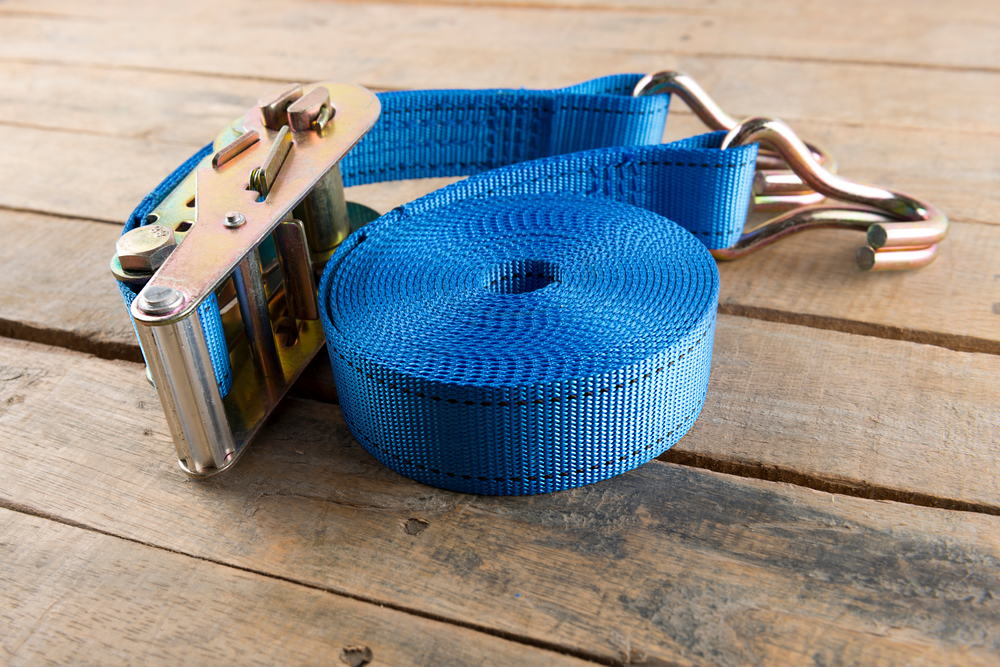Why Are Modern Tiedown Straps Made with Nylon Webbing?
Have you ever noticed that nearly all tiedown straps these days are made with nylon…

Have you ever noticed that nearly all tiedown straps these days are made with nylon webbing material? I cannot remember the last time I saw a tiedown made with something else. Sure, you can still buy ropes and rubber bungee cords. Chains are still out there if you know where to look. But purpose-made tiedown straps seem to be universal in their nylon webbing construction.
I suspect there are good reasons for this. I am guessing brands like Rollercam prefer nylon webbing for their tiedown straps because it ticks all the boxes on their list of requirements. That being the case, I did a little research into nylon webbing. What I discovered explains why it is such a popular material for all sorts of products, and especially tiedown straps.
Nylon’s Molecular Structure Is Strong
Right off the bat, I discovered that nylon is really a fabric that starts out as long polymer chains consisting of individual molecules bonded together. Not only that, but the bonds are also extraordinarily strong. Nylon is similar to plastic in that sense. Its strong bonds are hard to break. That is what gives nylon such fantastic tensile strength.
For the record, tensile strength is defined as the amount of force a material can withstand before failure. The higher the tensile strength, the stronger the material is and the better it is at withstanding external forces.
Nylon Webbing Is Woven
My research also revealed that nylon webbing material is manufactured using a weaving process. Like all woven fabrics, nylon offers extra strength due to the way weaving disburses energy across the entire surface of the material. Woven materials contain countless contact points through which energy can be disbursed. So when external force makes contact with webbing material, it is disbursed far and wide.
Nylon’s woven nature means that, in addition to boasting high tensile strength, it is also flexible. You can secure nylon tiedown straps snugly over the top of your cargo. You can wrap them around trees or poles. You have a very flexible strap that maintains its strength regardless of your tiedown configuration.
Nylon Webbing Material Has a Unique Finish
Near the end of the manufacturing process, a unique chemical finish is applied to nylon webbing material. This finish does multiple things. First, it makes nylon abrasion resistant. That is important when you are talking tiedown straps. But why stop there?
The finish also makes nylon water resistant as well as resistant to temperature extremes and UV rays. It doesn’t make nylon webbing indestructible, but the finish certainly helps the material stand up to extremes very well.
Specific Characteristics of Nylon Webbing
It is the specific characteristics nylon webbing is known for that makes it so attractive as a material for tiedown straps. Let us go back to abrasion resistance. If you are using tiedown straps to secure cargo on the back of a truck, you don’t want them to wear out quickly due to friction between the material and your cargo. Being abrasion resistant means tiedown straps can be used time and again without issue.
Another attractive characteristic is nylon’s resistance to chemicals. Webbing material can be used safely in most industrial environments because it is unaffected by chemical exposure. Of course, there are exceptions to that rule. There are a few chemicals nylon doesn’t play well with.
At any rate, nylon webbing is the preferred material for modern tiedown straps. Whether you are talking ratchet straps, cam straps, buckle straps, or any other type of strap configuration, nylon webbing material is tough enough to do the job without worries of breaking, wearing out, or being affected by the weather.






